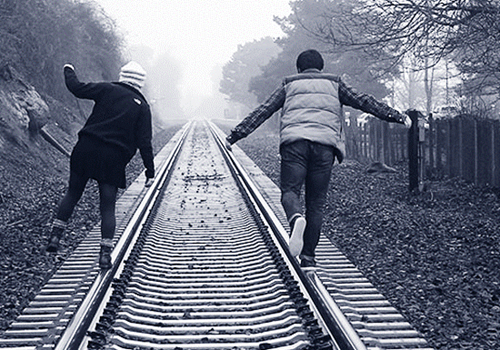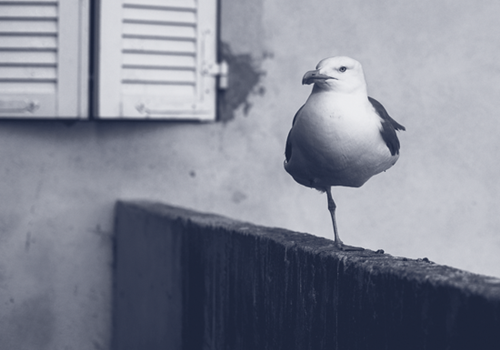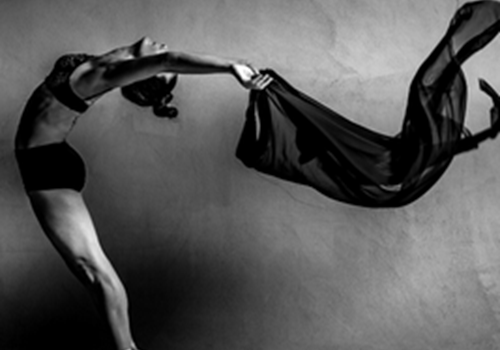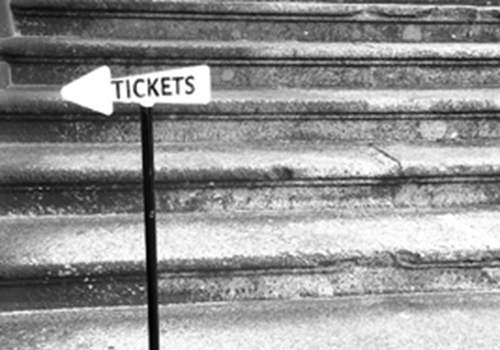Moments before Covid struck, a white paper for the Entertainment Industry, BEYOND 2020, tentatively shared…
“One thing is certain change will never be this slow again… we must acknowledge that the future is uncertain - gaining clarity on what lies ahead and ensuring that informed choices and decisions are made, will be critical to both survival and success”
The genuine value of these spookily perceptive statements, was not immediately recognised. They are now...
Whilst life predictably challenges us to find a better way to evolve, the disruptive pace of the last five years, has brought a greater need to find, maintain and improve our balance.
But we must be clear, successfully creating balance isn’t about finding something flat, calm and undisturbed… indeed it’s something quite different.
It’s a platform for moving forward.
Creating balance, shapes and secures a stable position, from which we can recognise and adjust how we do things… and there is proven evidence of survival and success from those who are continually able to change and keep evolving.
Changing the narrative on how we do things, demonstrating our agility by how we do things, reflects a prized ability to adjust to the current reality.
Nancy Medina, the artistic director of the Bristol Old Vic, in her keynote opening to The Stage’s recent ‘Future of Theatre’ conference, issued a rallying call to theatre leaders to:
"Break down barriers" and "make meaningful space" for fresh stories to find their way on to stages… asking producers, venues and investors to "create the infrastructure for new ideas to flourish", telling them "not to pander to defunct ideas of what our audiences may want, but to offer art that we didn’t even realise we needed”.
A clear call for new writing but also for changing the narrative on how you do things, reflecting an agility and sense of adjusting to the current reality… and indeed shaping and responding to a strong sense of what’s ahead.
However, what is also true, is that unchecked and continual change with no framework and no verification or navigation is not the full answer.
Creating balance only succeeds by initially positioning that solid central spine that defines who you are, what you do and why you do it… something that stands firm throughout.
With this in place, you now have a secure reference for the choices you make and the decisions you reach. You’re able to focus on what matters most, use your strengths in different ways, and learn and evolve more effectively.
One final, but quite timely quote from the BEYOND 2020 paper… "we’ve reached a tipping point, having largely evolved without fundamental change or disruption (in the industry) and now face pressure to change”.
All the usual suspects were identified, including, reduced funding (where the current Arts Council review continues the story), shifting audience sectors, emerging technology, plus redefining boundaries for how art is made, who makes it and how it’s experienced. A strong call-out to re-think traditional models.
Understandably, many 'traditional models' have since been measurably re-defined...
There’s a choice of Macbeth, staged in either cavernous out of town sheds, or more intimately through 'whisper sensitive' head-phones; the accelerated interpretation of immersive performance, with a glowing nod to the Bridge Theatre and of course, the increasingly successful live streaming, now engaging a wider theatre world.
Rufus Norris artistic director and CEO of the National Theatre confessed in a recent interview that “When the NT Live experiment launched, broadcasting to around 270 venues worldwide – I was a complete sceptic. I knew that theatre was dependant on the live relationship between audience member and actor, and any compromise was suspect. I had too often seen a terrible archive recording of something made with care shot from the back of the stalls and withered with shame at the resulting record. I was wrong’’.
He then shared one of the key observations that cited his change of heart… "I was delighted to find that the live experience was also between audience members, that a crucial aspect of the shared experience had been preserved”.
If we may suggest, as with the other examples highlighted, this was creating balance.
The spine of who they are, what they do and why they do it, remained genuinely solid throughout and helped them balance their choices and decisions. In other words, NT’s quest for quality, desire to extend their solid reputation, and deliver an engaging shared audience experience helped them to adjust ‘how’ they delivered – responding effectively to the current and forward reality of satisfying a new audience appetite and leveraging progressive technology.
The industry still shares a common reality which it needs to respond to – to continue to appeal to audiences in new and innovative ways - led by the art; to embrace advances in production and technology, to protect and progress the arts in ways that extend the legacy for current and future generations and to open up revenue streams to ensure funding for the sector and further contributions to our economies.
It is feasible to successfully move forward against each of these priorities, if you initially build on a balance core platform and adjust ‘how’ you do things against that framework.
David Hockney recently greeted guests to the Lightroom immersive presentation, with a warm commentary that endorsed this further, as he openly confirmed his view to all “there’s an awful lot of ways at looking at things… I want to keep discovering fresh vibrant ways of seeing”.
There will always be 'an awful lot of ways of looking at things', influenced by whatever the world offers. If you protect and stay connected to the core of what you’re trying to achieve, you’ll be in a better place to adjust ‘how’ you create new work or interpret a piece of great writing, a precious songbook, or compelling artwork.
The key messages of BEYOND 2020 remain pertinent today and indeed in many instances, have surfaced in bigger ways through unforeseen disruption.
Whilst many in the sector continue to survive, survival as a sole measure of success is dangerous. Continuing to evolve effectively across all areas of the industry is more critical – this requires us to create the balance we need to survive, succeed and to keep moving forward. And this is no different for you as an individual, a leader, a team, or an organisation.
With all the creative talent that exists across the Arts, this sector should feel capable, confident and motivated to find the best ways to create the balance we need to keep moving forward. And like all acts of balance, this will involve us taking action, trial and error and continual practise. Not just more talk on the problems we face.
The White Paper provided a collective response to the changes taking place that are still in play today, offering relevant recommendations and ideas, alongside proposed future working models, approaches and partnerships that might help us create the balance across the industry we need now more than ever.
Whilst life predictably challenges us to find a better way to evolve, the disruptive pace of the last five years has brought a greater need to create balance.

We’re a small, tight team of experienced consultants, who have helped leaders and organisations through the best and the worst of the past thirty years.

We help you create balance - the ability to adjust your position relative to the world around you, so you can survive, succeed and keep moving forward.

Where we share our client stories from the past 30 years.

Sales and Ticketing teams are designed to sell tickets. So, when life shifts overnight to refunds & new dates, it’s a business model re-think. But… it still all starts with a ticket